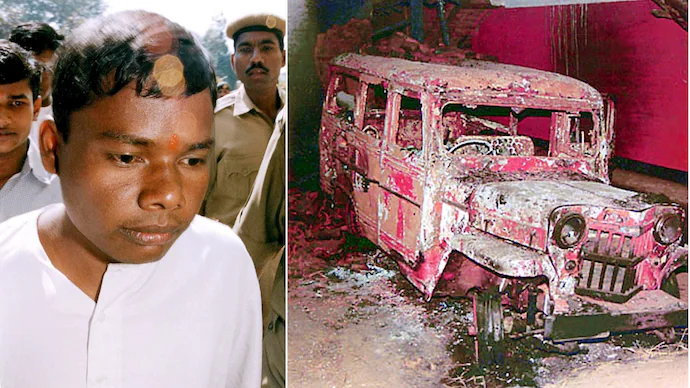Mahendra Hembram, one of the individuals convicted in the gruesome 1999 murder of Australian missionary Graham Staines and his two young sons, was released from Keonjhar jail in Odisha after serving 25 years. The triple murder, in which Staines, 58, and his sons Philip (10) and Timothy (7) were burned alive in a station wagon in Manoharpur village, shocked India and drew widespread international condemnation.
Hembram, now 50, was among the 14 people accused of involvement in the crime. He, alongside Dara Singh, was convicted for playing a role in the attack that occurred on the night of January 21, 1999. While Singh was considered the leader of the mob, Hembram was sentenced to life imprisonment for his participation.
On Thursday, Hembram’s release was confirmed by jail authorities. According to Jailer Manaswini Naik, Hembram’s release followed a decision by the State Sentence Review Board, which approved his freedom based on good conduct during his time in prison. Hembram’s release comes after serving 25 years, aligning with rules that allow the release of convicts after 14 years for those who show good behaviour.
Hembram’s Bail has Ignited Backlash from Opposition
However, Hembram’s release has sparked a significant outcry from opposition politicians. Congress leader Manickam Tagore expressed outrage, condemning the decision as a “dark stain on Indian justice.” He criticised the release of a man who, in his view, was responsible for a hate-driven act of violence that resulted in the deaths of two innocent children. Tagore questioned what message the Indian justice system was sending by releasing Hembram.
The Vishwa Hindu Parishad (VHP), a Hindu nationalist organisation linked to the ruling Bharatiya Janata Party (BJP), welcomed Hembram’s release. Kedar Dash, VHP’s joint secretary, referred to the decision as a “good day” and expressed approval of the government’s actions, aligning with the group’s ideological stance.
Hembram, upon his release, spoke to reporters, maintaining that he had been falsely implicated in the case. He claimed the incident was tied to allegations of religious conversion. “I spent 25 years in jail after being falsely implicated in an incident related to religious conversion,” Hembram stated. His remarks reflect the controversial nature of the case, which remains a point of debate in Indian politics and society.
How the Staines and his Sons were Killed?
The tragic killings of Staines and his sons occurred when the family was sleeping in their vehicle outside a church in Odisha’s Manoharpur. A mob attacked the vehicle, setting it on fire, and the family was unable to escape. The killings were believed to be motivated by tensions surrounding religious conversions, with Staines having worked with leprosy patients in the region. The crime generated massive outrage worldwide and prompted an investigation by India’s Central Bureau of Investigation (CBI).
Hembram’s co-convict, Dara Singh, was initially sentenced to death for his role in the attack, but his sentence was later commuted to life imprisonment by the Orissa High Court in 2005. Singh, who also faces charges in other criminal cases, has recently appealed for his release, citing precedents such as the Supreme Court’s order in the case of A.G. Perarivalan, a convict in the Rajiv Gandhi assassination case. Singh remains in prison, but his lawyer is pursuing a petition for his release.
After the murders, 51 individuals were arrested, and 14 were convicted in the case. Over time, 12 of the accused were acquitted, leading to questions about the case’s investigation and the strength of the evidence presented. Despite the controversy, Hembram’s release marks the end of a long prison sentence for his role in one of the most notorious crimes in modern Indian history.
The issue has reignited a national debate about justice, punishment, and the rehabilitation of prisoners, particularly those involved in high-profile cases with religious overtones. For some, Hembram’s release is a sign of the legal system’s commitment to rehabilitation, while for others, it remains a deeply troubling decision that raises concerns about the message it sends regarding the severity of hate-motivated crimes.


